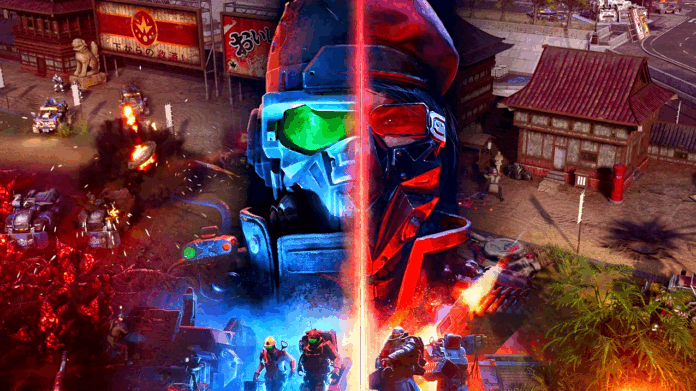For many fans, Tempest Rising is a worthy spiritual successor to Command & Conquer. According to the studio’s CEO, the reason for its success is rather unusual.
Tempest Rising has packaged nostalgic Command & Conquer memories in a modern guise and struck a chord: 87 percent of Steam reviews rave about the real-time strategy game. According to studio head Frederik Schreiber, one of the reasons for its success is that the employees in his team like RTS games, but are not as fanatical about them as many fans of the genre.
Update from October 13, 2025:
We have updated this article to more accurately reflect the statements made by CEO Frederik Schreiber. We apologize for any confusion this may have caused.
In an interview for the video series The Hot Seat, he discusses the development process of Tempest Rising:
I actually think one of our advantages is that most of our team members weren’t passionate fans of RTS games… They like certain RTS games, especially the ones we draw inspiration from, but they’re far from being hardcore RTS fans. As a result, the team is enthusiastic about the game we are developing and not necessarily about all other RTS games.“
You can watch the full conversation right here:
While filmmakers and television producers often venture out of their comfort zone and try their hand at genres and franchises with which they have no personal connection, this is less common in the gaming world. After all, studios usually spend several years working on a project. If passion does not arise during the work process, as in the case described by Schreiber, the outcome can be disastrous.
For example, role-playing game developer BioWare took a nasty fall with its live service game Anthem. In the case of the Resident Evil movies, it seems that no one was really familiar with the games either.
Of course, all of this can also be an absolute advantage, as in the case of Tempest Rising: Andor showrunner Tony Gilroy had virtually no connection to Star Wars beforehand, but the end product is one of the best the franchise has produced to date.
Incidentally, we viewed Tempest Rising somewhat more critically than many players; in our test, the real-time strategy game still received a solid rating of 76.
Can you think of any other examples where not being a fan was an advantage or disadvantage? The author of this article has the Witcher series on Netflix in mind, although opinions on that are likely to vary. And what do you think of Tempest Rising? Feel free to share your ideas and opinions in the comments!


